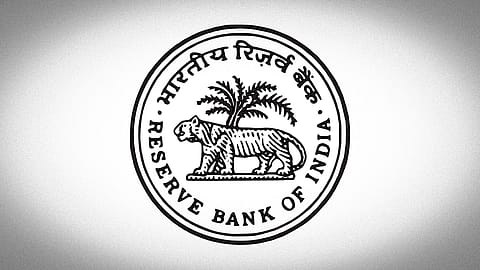RBI asks banks to reduce frozen and inoperative accounts; here's why
The latest RBI analysis says the number of "inoperative accounts or unclaimed deposits" in several banks was on the higher side as compared to their total deposits as well as in absolute terms

The RBI has advised banks to urgently take necessary steps to bring down the number of inoperative or frozen accounts. The banks have also been asked to make the process of activation of such accounts smoother and hassle-free, including by enabling seamless updation of KYC through mobile or internet banking, non-home branches, video customer identification process, etc.
The RBI says while the accounts of beneficiaries of various central or state government schemes like DBT/EBT etc., are required to be segregated to facilitate uninterrupted credit of such DBT/EBT amounts in their accounts, instances have been observed where the accounts of such beneficiaries have been frozen due to other factors such as pending updation or periodic updation of KYC.
Since these accounts mostly pertain to people from the underprivileged sections of society, the RBI has told banks to facilitate the process of activation of accounts by taking an empathetic view in such cases. "The banks may also organise special campaigns for facilitating activation of inoperative or frozen accounts. Besides, the banks may also facilitate Aadhaar updation for customers through the branches providing Aadhaar-related services. Instructions have been issued separately to SLBCs to proactively monitor the situation in their respective jurisdictions with a view to minimise customer inconvenience," says the central bank.
The progress in the reduction of inoperative or frozen accounts and the special efforts made by the banks may be monitored by the customer service committee (CSC) of the RBI's board, it said. In addition, the banks have been advised to release a report on such inoperative accounts on a quarterly basis to the respective senior supervisory manager (SSM) through the DAKSH portal, starting from the quarter ending December 31, 2024.
The central bank says its department of supervision recently conducted an analysis, which revealed the number of "inoperative accounts or unclaimed deposits" in several banks was on the higher side as compared to their total deposits as well as in absolute terms.
The RBI found that this was happening due to "either inactivity for a long time or pending updation or periodic updation of KYC" in such accounts. Reportedly, there were instances of customers facing inconvenience when they approached the bank branches for activation of inoperative accounts, including inadvertent errors in customer details such as mismatch in name, etc.
The central bank department also observed that a few banks have a large pendency of accounts that are due for updation or periodic updation of KYC, which often results in such accounts getting frozen for further transactions as per the bank’s internal policies.
Recommended Stories
As per the RBI's circular issued on January 1, 2024, banks are required to undertake an annual review of accounts or deposits where there are no customer-induced transactions for more than a year.